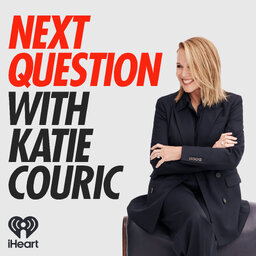In a tweet on Tuesday night, political analyst Amy Walter dubbed the 2018 midterms the “‘choose your own narrative’ election”—meaning that voters on all sides could find cause for celebration or disappointment. Katie and Brian talk with Amy about what the results mean, what we’ve learned about the electorate, and how the elections might shape both parties’ strategies in 2020. Presidential historian Doug Brinkley also joins Katie and Brian to discuss how this week’s election compares to midterms past—and he shares his thoughts on how President Trump will react to the new opposition Congress. Plus, we take your calls! Correction: Our guest, Doug Brinkley, misspoke when he said that Congressman Will Hurd (R-TX) lost his 2018 election. In fact, Hurd won re-election. Brinkley also characterized Hurd as "Trumpian," but many would not characterize him this way.
Learn more about your ad-choices at https://www.iheartpodcastnetwork.com
 Next Question with Katie Couric
Next Question with Katie Couric


